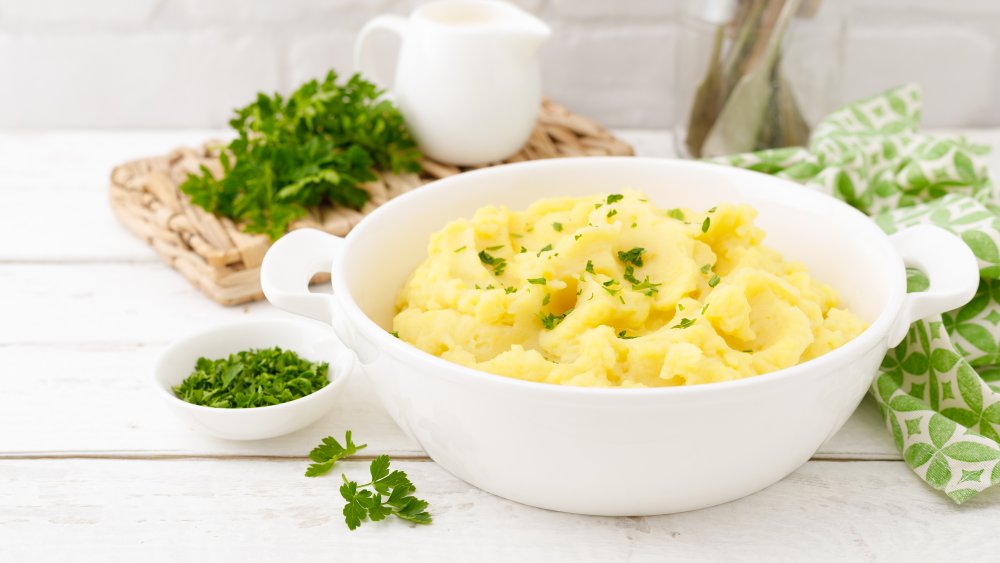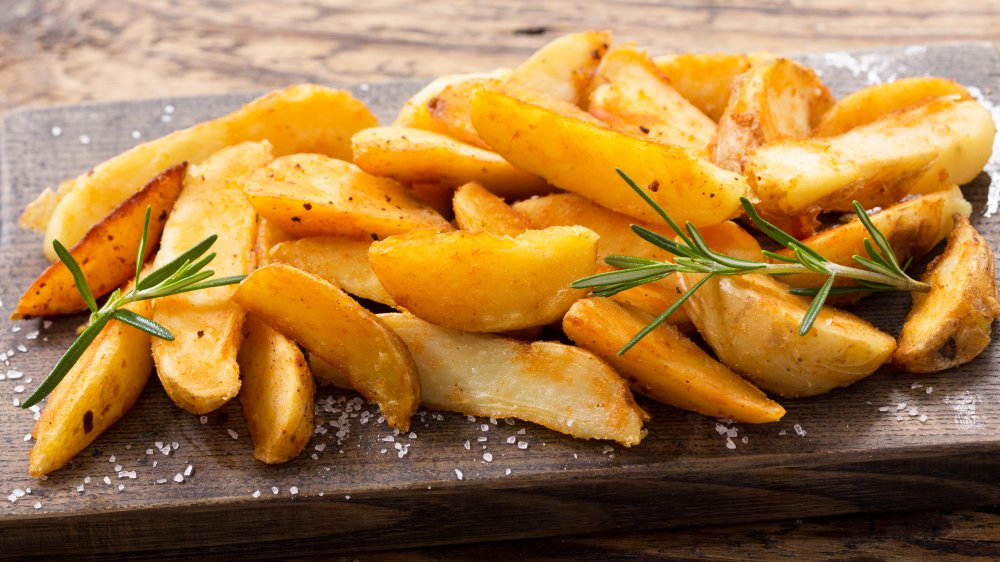The Reason Reheated Potatoes Could Make You Sick
One of the best parts of cooking a gigantic, delicious meal is knowing you'll have leftovers to eat the next day — or three! Nothing could be easier than just popping your food into the microwave and settling in for a binge-watching session, knowing all you have to do is listen for the ding. Leftovers can be extra useful when you are trying to eat healthier as well — you know exactly what you put into the meal and aren't letting anything go to waste, saving you money and time (USA Today claims U.S. households throw away about $640 of perfectly good food per year).
Plus, balanced meals typically take longer to make and clean up after, as you have to focus on all the components instead of just one item, and in the meantime, you're stacking up a ton of dirty dishes. If you reheating leftovers, you can spread that cooking and cleaning out over a few days.
However, there may be an issue, especially if you're trying to zap potatoes. While you may feel very savvy eating leftover potatoes for lunch or dinner, make sure you are cooling and reheating your food safely to avoid regretting those taters the next day.
How to avoid food poisoning when you reheat potatoes
The Independent explains that while the actual act of reheating potatoes is not an issue, it's actually the way you cool and store them after cooking. Allowing potatoes to sit at room temperature for too long (say, the length of a nice dinner with friends, plus the car ride home) can allow Clostridium botulinum, the bacteria that causes botulism, to grow, especially if sealed in an airtight container or foil.
According to the FDA, botulism is a severe form of food poisoning. While experiencing this form of food poisoning is rare, its mortality rate is high. The CDC says the ideal environments for botulism are low-oxygen, low acid, and low sugar.
Signs of botulism include blurred or double vision, drooping eyelids, slurred speech, weakness, difficulty swallowing, and difficulty breathing, and there's bad news for those looking to nuke their potatoes — reheating your spuds does not necessarily kill off this harmful bacteria.
To avoid food poisoning, The Healthy recommends either roasting potatoes on a baking sheet and refrigerating them as soon after cooking as possible, or even just "baking" your potato in the microwave to cut down on cook time. Australian media company SBS agrees, adding that another thing that causes food poisoning is improperly cleaned potatoes. They caution you to pay close attention to the "eyes and nooks in potato skins where soil and bacteria can be caught and begin to multiply after the cooking process."

